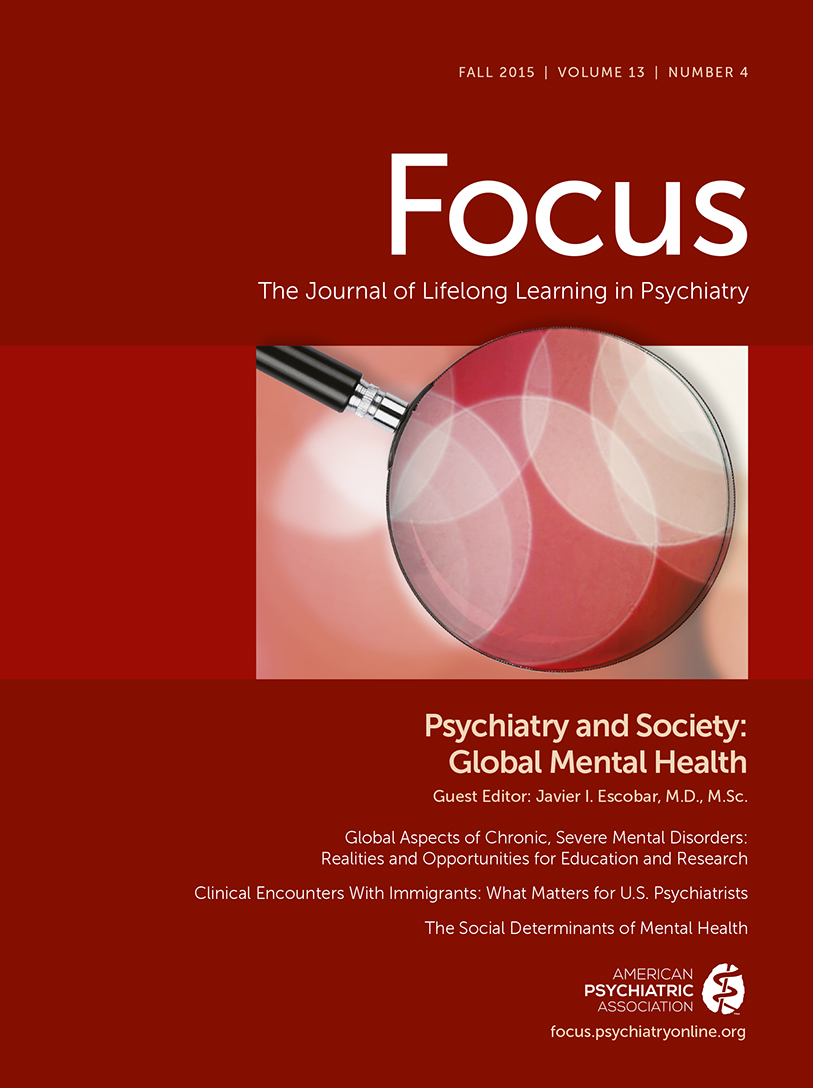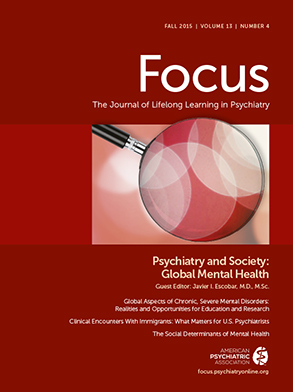Sound, ethical decision making is essential to astute and compassionate clinical care. Wise practitioners readily identify and reflect on the ethical aspects of their work. They engage, often intuitively and without much fuss, in careful habits—in maintaining therapeutic boundaries, in seeking consultation from experts when caring for patients with difficult or especially complex conditions, in safeguarding against danger in high-risk situations, and in endeavoring to understand more about mental illnesses and their expression in the lives of patients of all ages, in all places, and from all walks of life. These habits of thought and behavior are signs of professionalism and help ensure ethical rigor in clinical practice.
Psychiatry is a specialty of medicine that, by its nature, touches on big moral questions. The conditions we treat often threaten the qualities that define human beings as individual, autonomous, responsible, developing, and fulfilled. Furthermore, the conditions we treat often are characterized by great suffering, disability, and stigma, and yet individuals with these conditions demonstrate such tremendous adaptation and strength as well. If all work by physicians is ethically important, then our work is especially so. As a service to Focus readers, this column provides ethics commentary on topics in clinical psychiatry. It also offers clinical ethics questions and expert answers in order to sharpen readers’ decision-making skills and to advance astute and compassionate clinical care in our field.
Laura Weiss Roberts, M.D., M.A.
Social issues in psychiatry occur on every level—the illness experiences of individual patients, challenges related to mental disorders within communities and across cultures, health system and policy issues across nations, and health disparities and stigma throughout the world. In this issue of
Focus, only a small portion of these issues is addressed, and yet the range of topics is still immense. Ethical considerations accompanying these social issues are also immense—and nuanced, complex, and insufficiently understood. For these reasons, I suggest returning to the “first principles” of bioethics as a helpful framework for understanding the ethical commitments that inform social issues in psychiatry (
1).
Eight bioethics principles at the foundation of modern bioethics have particular salience for social psychiatry issues (
Table 1).
Respect for persons refers to the fundamental regard for the worth and dignity of the human person.
Altruism is the ethical obligation to help others, setting aside self-interest and, at times, entailing self-sacrifice.
Autonomy is the notion of “self-rule.” This concept is understood as the capacity to make authentic, reasoned, and free decisions for oneself.
Beneficence is the ethical obligation to seek to do good and to bring benefit to others. A sister concept,
nonmaleficence, is the ethical obligation to avoid doing harm.
Compassion is the notion of “suffering with”—attunement to the experiences, hardships, and anguish of others.
Justice relates to the fair, equitable distribution of benefits and burdens in society.
Veracity is the ethical obligation to be truthful, involving the positive duty to be honest and the negative duty to avoid engaging in deception.
Whether considering social issues in psychiatry on the level of the individual or the entire world, these eight principles offer clarity and guidance. Respect for persons, for instance, serves as a reminder of the centrality of individual rights and human dignity. The World Health Organization has identified the violation of the human rights of people living with mental illnesses as a critical issue in most, if not all, countries. Also, people with mental illness rarely enjoy a surfeit of demonstrations of respect for their dignity, as evidenced by the pervasive stigmatization of mental illness. Autonomy is a principle that is salient in caring for patients and is expressed through clinical and ethical practices, such as informed consent. In some countries, involuntary treatment without legal protections is common for the most severely ill. Indeed, in the recent past, political dissidents in certain countries were commonly institutionalized for mental illness for their “deviant” beliefs. Remaining mindful of autonomy, along with nonmaleficence, is also helpful in reflecting on cross-culturalism on a larger scale and the harm done when one culture or way of life seeks to oppress another.
Altruism and compassion, together, elevate the importance of the role of the profession in acting with generosity and empathy for the hardships and experiences of others. Honesty, or veracity, is salient on every level. Truthfulness and transparency are vital in establishing trust with patients and their families and communities. Honesty is crucial in creating trusting international collaborations to improve daily living conditions and to bring health resources to vulnerable peoples, including people with mental illness, addictions, and co-occurring disorders. Finally, and most important, in considering social issues in psychiatry, the principle of justice is first and foremost. This principle is fundamental in behaving with fairness toward patients seeking care for mental illness. This principle is also fundamental to developing public policy that will bring about equitable systems and outcomes and to reflecting on health disparities. Health disparities exist when comparing resources committed to the care of physical disorders as opposed to the care of mental disorders, certainly. Disparities also exist with respect to health status, education and literacy, and outcomes related to well-being across a continuum of factors, including age, gender, and race, as well as community size and economic status.
Questions and Answers
Match the scenario or observation related to social issues in psychiatry with the relevant bioethics principle.
___
1. A psychiatrist must decide whether to send a 10-year-old boy with psychotic symptoms and seizures to a city more than 100 miles away, because no hospital facilities are in the region. The parents cannot afford to accompany the child. The psychiatrist arranges transportation for the child and works with the hospital team to facilitate daily video contacts with his parents.
___
2. APA strictly prohibits the participation of psychiatrists in torture (
2, p. 9).
___
3. A recent report issued by the World Health Organization (
3) states: “Our children have dramatically different life chances depending on where they were born. In Japan or Sweden, they can expect to live more than 80 years; in Brazil, 72 years; in India, 63 years; and in one of several African countries, fewer than 50 years” (p. 26).
___
4. Genital mutilation of young women against their will is a common practice in many countries. An organization of human rights advocates widely distributes verified narrative accounts of the experiences of survivors.
___
5. Overall health outcomes throughout the world are inversely related to economic status.
___
6. The only clinician in a remote community believes that one of his patients is developing postpartum psychosis. Because he does not feel competent to treat her, he contacts the nearest university medical center to arrange a consultation.
___
7. A psychiatrist evaluated a patient and found that he was not capable of providing informed consent for a decision with significant health consequences. The psychiatrist sought his assent for elements of his care, about which he was able to understand and express his authentic preferences.
___
8. A homeless person with severe and persistent mental illness has access to the same level of care as commercially insured patients seen at a clinic.
___
9. A psychiatrist evaluates a patient who is refusing life-saving blood transfusions. The psychiatrist finds no evidence of decisional incapacity; she learns that the patient is a devout Jehovah’s Witness.
___
10. APA strictly prohibits sexual relationships between psychiatrists and their current or former patients (
2, p. 4).
Answers: 1, B; 2, D; 3, C; 4, E; 5, C; 6, D; 7, A; 8, C; 9, A; 10, D.

